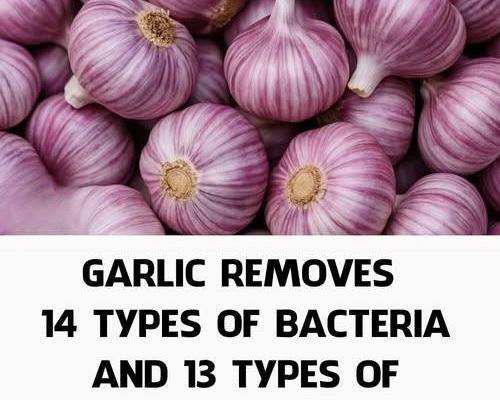
Garlic and cloves, though common in kitchens around the world, are far more than simple flavor enhancers. Both have deep roots in traditional medicine and modern scientific research increasingly supports their powerful health-promoting properties. Packed with bioactive compounds, these ingredients offer a wide array of benefits for the immune system, heart, digestion, and more.
Garlic, scientifically known as Allium sativum, is rich in sulfur-based compounds, the most notable being allicin and ajoene. Allicin is formed when garlic is chopped, crushed, or chewed, and is responsible for much of garlic’s distinct aroma and potent biological activity. These compounds have been shown to possess strong antimicrobial effects, helping the body fight bacteria, viruses, fungi, and even certain parasites. This makes garlic a valuable natural aid in supporting the immune system, particularly during seasonal illnesses or times of increased susceptibility to infection.
Beyond its antimicrobial properties, garlic is also recognized for its anti-inflammatory and antioxidant effects. Chronic inflammation is linked to numerous health conditions, including heart disease, diabetes, and some forms of cancer. By reducing inflammatory markers and neutralizing harmful free radicals, garlic helps protect cells from oxidative damage and supports overall longevity.
Cardiovascular health is another area where garlic shines. Several studies suggest that regular garlic consumption can help lower total and LDL (“bad”) cholesterol levels, while modestly increasing HDL (“good”) cholesterol. It may also slightly reduce blood pressure in individuals with hypertension. These effects, combined with its antioxidant properties, contribute to a healthier circulatory system and may lower the risk of heart attack and stroke. Some emerging research even points to garlic’s potential in slowing the growth of certain cancer cells and in helping regulate blood sugar, making it beneficial for metabolic health.
Cloves, the dried flower buds of Syzygium aromaticum, bring their own impressive wellness benefits. They are particularly rich in eugenol, a compound known for its strong antioxidant and anti-inflammatory actions. Eugenol has been studied for its ability to protect against oxidative stress and reduce inflammation in the body, which may in turn support cardiovascular and metabolic health.
Cloves have been linked to improved blood sugar control, with some studies suggesting that clove extracts can mimic certain effects of insulin, enhancing glucose uptake and improving insulin sensitivity. Additionally, cloves may help balance cholesterol and triglyceride levels, which further supports heart health.
Topically, clove oil is widely used for its analgesic properties, especially in relieving dental pain. Its numbing effect makes it a common ingredient in natural toothache remedies. In oral health, the antimicrobial nature of cloves helps combat harmful bacteria, freshen breath, and promote healthier gums. Cloves are also known to support digestion, reduce bloating, protect the stomach lining, and enhance liver function by aiding detoxification processes.
When combined, garlic and cloves form a potent duo of natural health allies. Garlic can be incorporated into a variety of savory dishes, from soups and stews to roasted vegetables and marinades, while cloves add warmth and complexity to teas, baked goods, and spice blends. Regularly including them in the diet is an easy, accessible way to boost immunity, improve cardiovascular well-being, support digestion, and promote overall vitality.
While both are generally safe when consumed in culinary amounts, concentrated supplements or medicinal doses should be taken with caution and preferably under professional guidance, especially for individuals on blood-thinning medications or with certain health conditions. Used wisely, these two humble spices can deliver extraordinary wellness benefits, proving that sometimes the most powerful remedies are already sitting in our kitchen cabinets.


